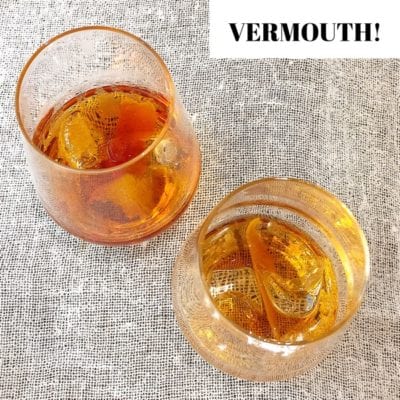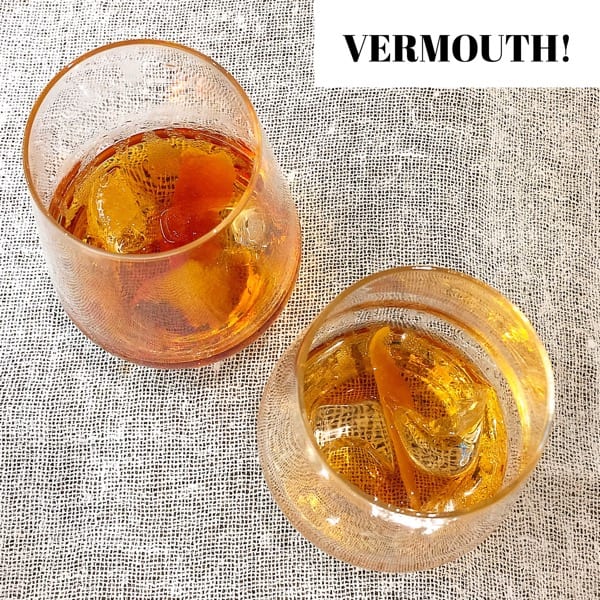There’s more to vermouth than cocktails
You’ve probably tried vermouth in either a Manhattan or a Negroni but have you tried it neat?
We have dabbled with the sourer side of drinks as the heat rises making our way up the ladder from Aperol to Campari, with a few Negronis and Manhattans on the way, before settling on vermouth as our drink of choice for summer 2017. It’s extremely popular in Spain with bars dedicated to the stuff, as we discovered on our last two trips there, but what is it and what can you do with it? Read on!

What is vermouth?
It’s an apéritif, which literally means “opening” or “to open,” basically it gets the stomach juices going, getting you relaxed and ready for a meal apparently, well, this is how it was originally marketed and I think I can quite happily embrace this!
Vermouth is made with fortified wine, basically, wine which has been mixed with brandy, sugars, aromatic herbs and botanicals such as cloves, cinnamon, lavender and cardamom are added. Unlike gins, these botanicals are usually not listed to keep the recipe a secret.

Types of vermouth
Generally red is sweet and white is dry. With the red variety originating from Italy and white coming from France originally.
Red: The most common brands are Martini Rosso, Cinzano Rosso and Noilly Prat Rouge but also look out for Punt e Mes, Cocchi Americano Rosa and Dubonnet. The bittersweet taste is delicious in a Negroni.
White: This is the ideal Martini maker as it’s less sweet than the red. Look out for Noilly Prat Original French Dry, Martini Bianco and Cocchi Americano.
Vermouth, of course, is great in cocktails, but try some neat, over ice with a sliver of orange peel and think of sitting on a bar terrace in Spain.
Vermouth bars in Glasgow and Edinburgh
If you’re looking for a bar with a decent selection of vermouth in Glasgow we recommend the Kelvingrove Cafe in Finnieston (1161 Argyle Street, Glasgow G3 8TB), while in Edinburgh check out Bryant and Mack Private Detectives (87-89 Rose Street North Lane, EH2 3DXR).
Top tip!
Once opened, vermouth will keep longer than regular wine because it’s fortified but storing it in the fridge will help to prolong its life and keep it in tip top condition. Try to use it within 1-3 months although it doesn’t go off as such the herby flavours won’t be as prominent.
What if your bottle has been open for longer?
Don’t fear, you can substitute vermouth in any recipe you would add wine to. Add to salmon, grilled peaches or French onion soup. The best use, however, is to drink it!
¡Salud!

Come say hello




